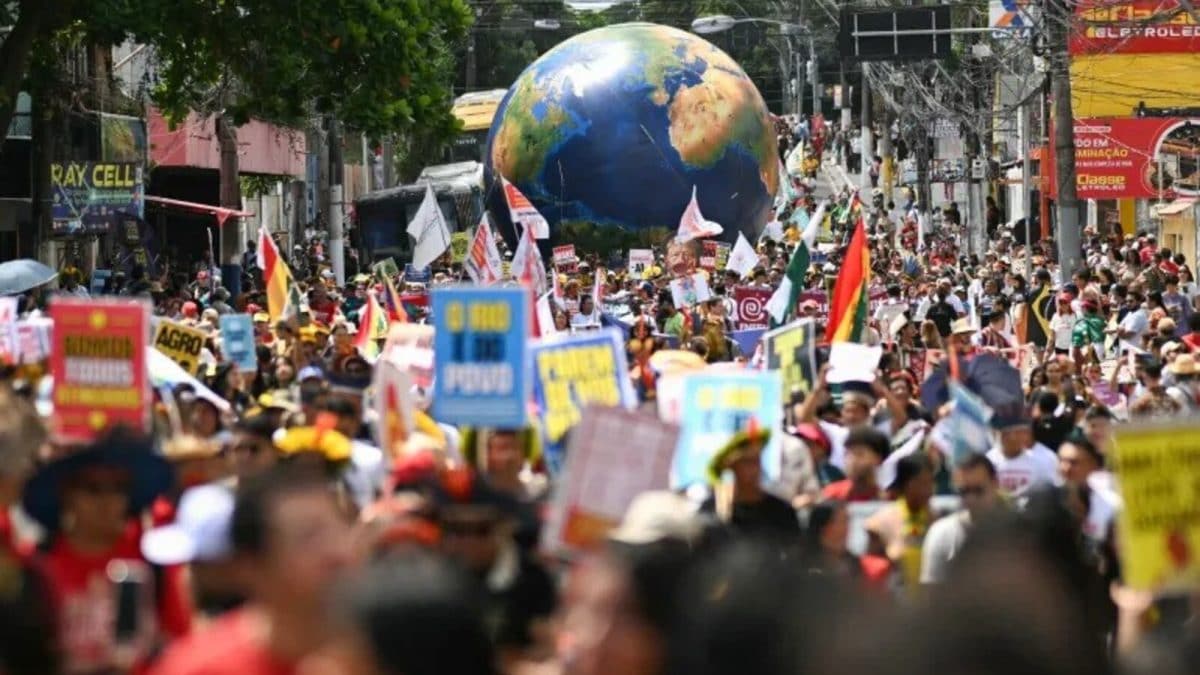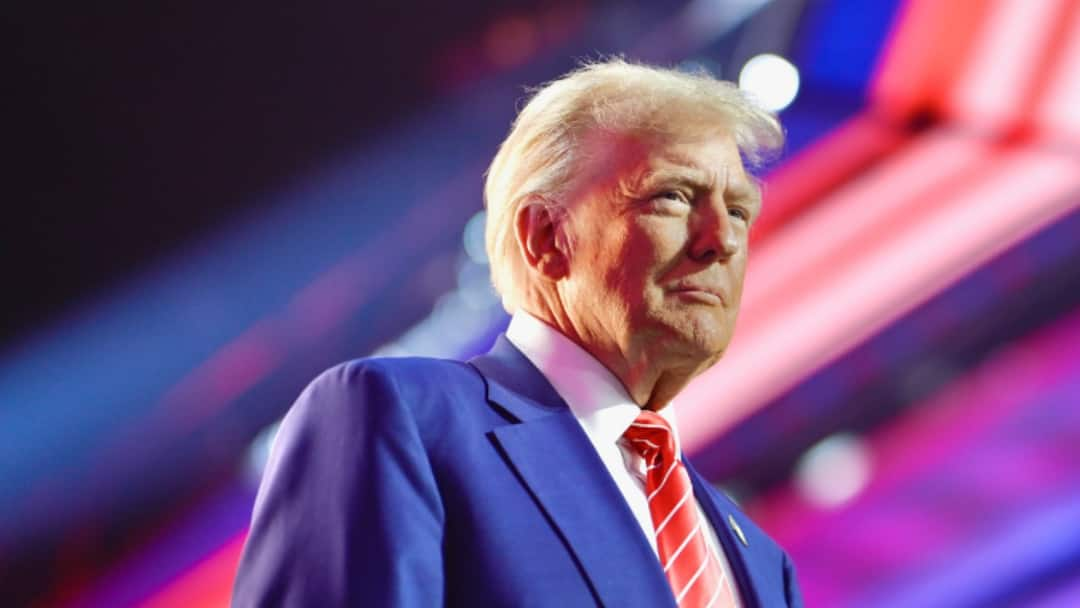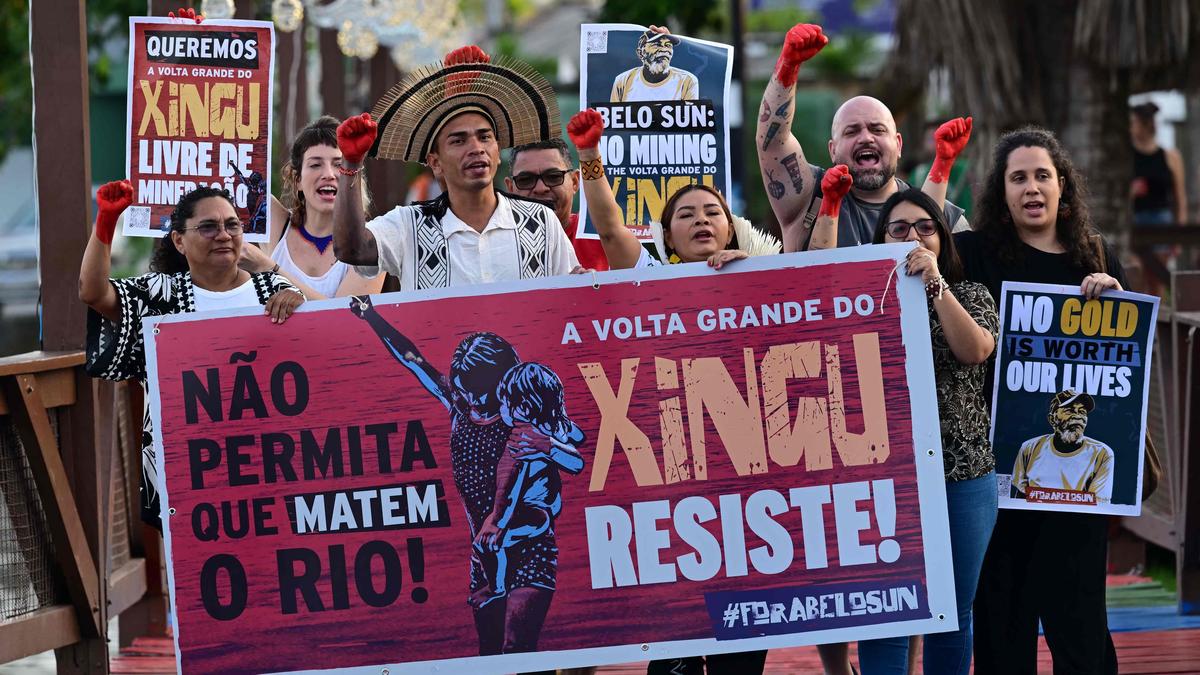Last Updated:
Thousands marched in Belem at COP30, urging Indigenous rights and climate action as Amazon deforestation grows, echoing UN and Amnesty warnings.

Thousands marched in Belem at COP30, urging Indigenous rights and climate action as Amazon deforestation grows, echoing UN and Amnesty warnings. (Pic: AFP)
Thousands of demonstrators flooded the streets of Belem, the host city for COP30, on Saturday, demanding that Indigenous voices and environmental defenders be prioritised at the COP30 climate summit underway in the Brazilian Amazon.
In a show of solidarity, Indigenous community members marched alongside climate activists, carrying a large Earth-shaped beach ball and a Brazilian flag reading “Protected Amazon”. The rally — branded the “Great People’s March” — marked the first major protest held outside the conference, which opened earlier this week and has drawn world leaders, scientists, and campaigners to address the escalating climate crisis.
Tensions have already surfaced inside the summit. Earlier, Indigenous activists disrupted proceedings, urging President Luiz Inacio Lula da Silva to take decisive action to shield their territories from mounting threats, including illegal development, deforestation and resource extraction.
Their concerns echo a recent Amnesty International report warning that billions of people globally are at risk from the expansion of fossil fuel projects, such as pipelines, coal mines, and oil operations. Indigenous communities, the report stressed, often find themselves on the front lines of these developments.
“Today we are witnessing a massacre as our forest is being destroyed,” said Benedito Huni Kuin, a 50-year-old member of the Huni Kuin group in western Brazil, speaking to AFP. “We want our voices heard from the Amazon. We need more Indigenous representatives at COP to defend our rights.”
Youth activist Ana Heloisa Alves, 27, described Saturday’s mobilisation as the largest climate march she has ever been part of. “This is incredible,” she told the Associated Press. “You can’t ignore all these people.”
The protest comes at a critical juncture in the COP30 negotiations, which reach their halfway point amid bleak warnings from the United Nations. A recent UN report said the world is on course to surpass the crucial 1.5°C warming threshold “very likely” within the next decade. Current national climate pledges put global temperatures on track to rise between 2.3°C and 2.5°C by 2100.
“Progress is happening, but far too slowly,” said UNEP chief Inger Andersen, calling for “unprecedented emissions cuts” in an increasingly constrained timeframe.
Despite the urgency, analysts and several participants say they do not expect breakthroughs at COP30, which ends on November 21. However, there is cautious optimism for movement on older commitments, particularly funding mechanisms to help vulnerable nations adapt to climate impacts.
With inputs from Agencies
November 16, 2025, 09:12 IST
Read More








